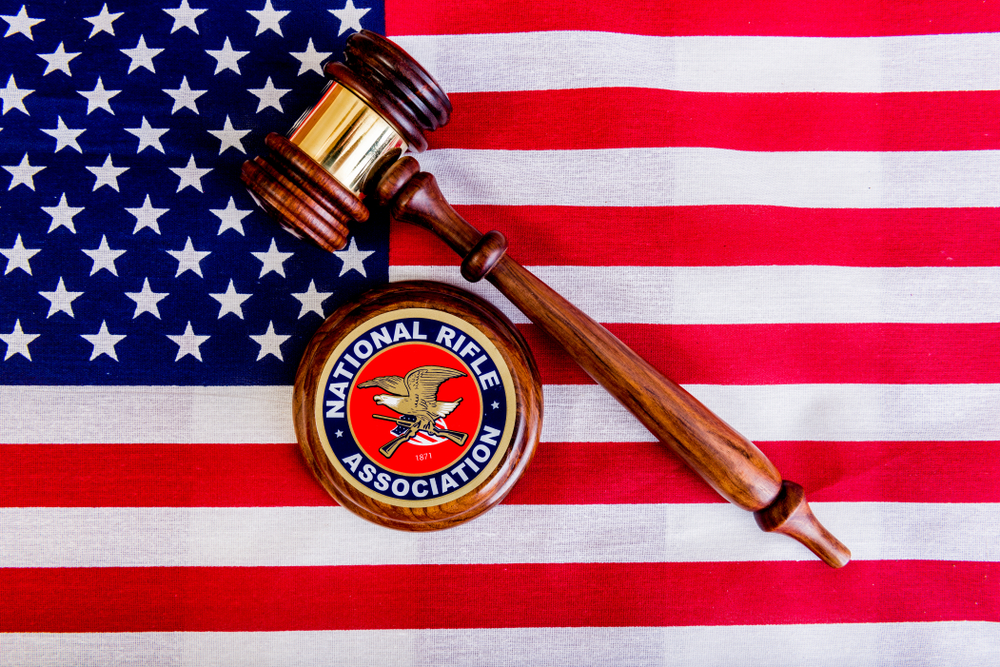In a case that highlighted nonprofit governance failures, the New York Attorney General (NYAG), Letitia James, filed a lawsuit against the National Rifle Association (NRA) in 2020, alleging serious financial misconduct at the highest levels of the organization. The lawsuit, which named the NRA as well as four senior executives unveiled a troubling pattern of self-dealing, financial mismanagement, and retaliation against whistleblowers within the nonprofit. As the case progressed, it offered not just a window into the inner workings of the NRA, but also a powerful reminder of the importance of nonprofit governance, financial oversight, and ethical leadership.This post explores the details of the case, the allegations, the jury’s findings, and lessons to help nonprofits avoid similar nonprofit governance failures.
The Allegations: A “Grim Story of Greed and Self-Dealing”
The lawsuit against the NRA, filed by Letitia James in August 2020, highlighted nonprofit governance failures including senior executives engaging in a long-standing pattern of financial misconduct. Senior executives siphoned millions from the organization. The Attorney General’s office described this as “a grim story of greed, self-dealing, and lax financial oversight at the highest levels of the NRA.”
Among the most damning allegations were:
- Exorbitant personal spending by Wayne LaPierre and other senior executives, including luxury vacations, yachting trips, and expensive gifts.
- Conflicts of interest and related-party transactions, where vendors with close ties to executives were given lucrative contracts in exchange for personal benefits.
- Retaliation against whistleblowers, who raised concerns about the financial mismanagement, leading to a hostile environment within the NRA.
- False financial filings, where the NRA’s regulatory filings, including the IRS Form 990 and audited financial statements, were found to be inaccurate.
The lawsuit sought not only financial restitution but also the removal of key leaders within the NRA and greater accountability for how the organization manages its charitable assets.
The Jury’s Findings: Holding Executives Accountable
After two years of legal wrangling, the case went to trial in front of a jury, which deliberated for six weeks before delivering its verdict. The jury found that the allegations against the senior executives, particularly Wayne LaPierre, and findings of serious nonprofit governance failures were substantiated. Here are the key findings:
1. Wayne LaPierre, the NRA’s long-time CEO, was found to have violated his fiduciary duties. The jury determined that LaPierre had received at least $1 million in excess benefits through personal spending charged to the NRA. However, the jury also agreed with the Attorney General’s office that this was not the full extent of his financial misconduct. He was ordered to pay an additional $4.3 million in restitution to the NRA. Moreover, the court barred LaPierre from returning to any role at the NRA for 10 years.
2. Wilson Phillips, who served as the NRA’s CFO, was found to have engaged in improper insider transactions. He too was ordered to pay restitution to the NRA, amounting to millions of dollars. Phillips later settled with the Attorney General’s office, agreeing to a lifetime bar from holding any fiduciary role within any nonprofit organization in New York.
3. John Frazer, the NRA’s General Counsel and Corporate Secretary, was also found liable, though his misconduct was more about nonfeasance. The jury found that Frazer failed to act on red flags and did not take steps to correct the false financial filings. Unlike LaPierre and Phillips, Frazer’s violations did not involve personal gain, but his failure to ensure compliance with governance and financial reporting standards led to significant issues within the NRA.
4. Joshua Powell, a former Chief of Staff and senior executive, settled with the Attorney General’s office before the trial began. He accepted a lifetime ban from holding any executive or fiduciary role at a nonprofit and paid $100,000 in restitution.
The NRA’s Defense: Shifting Blame
Throughout the trial, the NRA argued that it was a victim of “rogue employees and insiders,” deflecting responsibility from the institution to individual bad actors. The NRA claimed that its governance issues were the result of employees who exploited the organization’s trust and resources for personal gain.
However, the jury rejected this defense, finding that the NRA, as an organization, failed in its duty to properly oversee its operations and protect its assets. The NRA’s failure to hold its leadership accountable allowed financial misconduct to persist for years.
The Consequences: Restitution, Removal, and Institutional Change
The case didn’t end with the jury’s verdict. After the conclusion of the first trial, a second stage began—a bench trial focused on non-monetary remedies. While the NRA was ordered to make financial restitution, the question of what additional governance changes were necessary remained unresolved.
The judge overseeing the case expressed concern about the NRA’s continued reluctance to take responsibility for its organizational failures. Though the judge stopped short of appointing a monitor to oversee the NRA’s future operations—a remedy requested by the Attorney General’s office—he indicated that significant reforms would be required to ensure the organization doesn’t fall back into its old patterns. The judge emphasized the need for stricter oversight of board members and governance processes, stating that the NRA had demonstrated a “stunning lack of accountability.”
What’s Next for the NRA?
As of July 2024, the case remains partially unresolved, with the court still deliberating over the final non-monetary remedies that will be imposed on the NRA for its nonprofit governance failures. These could include enhanced oversight mechanisms, board reforms, and stricter controls on executive spending
While the NRA has implemented some compliance changes in response to the lawsuit, the organization faces a long road ahead to restore its credibility and ensure that its charitable assets are properly managed. The outcome of this case could serve as a wake-up call for other nonprofit organizations to scrutinize their governance practices and ensure that they are upholding their fiduciary responsibilities.
Lessons for Nonprofit Governance
This lawsuit highlights several important lessons for nonprofit organizations seeking to avoid nonprofit governance failures, especially those with significant financial and public influence:
- Oversight is critical: Regular audits, transparent financial reporting, and strong governance policies are essential to prevent misconduct and ensure accountability.
- Fiduciary responsibility is non-negotiable: Nonprofit executives and board members must act in the best interests of the organization and its mission, not for personal gain.
- Whistleblower protections are vital: Organizations must foster an environment where employees and board members can raise concerns without fear of retaliation.
- Accountability starts at the top: Nonprofit boards need to actively oversee the actions of their leadership and take swift action when misconduct occurs.
As the NRA case demonstrates, failure to do so can result in not only legal repercussions but also lasting damage to an organization’s reputation and mission.
Conclusion
The lawsuit against the NRA is a landmark case in nonprofit governance, exposing how the failure to oversee executive conduct can lead to widespread financial mismanagement. While the legal battles may continue for some time, the lessons from this case are already clear: nonprofits, no matter how large or influential, must prioritize transparency, accountability, and ethical governance. Only by doing so can they protect their charitable assets and uphold the trust placed in them by donors, members, and the public.
Ellis Carter is a nonprofit lawyer with Caritas Law Group, P.C. licensed to practice in Washington and Arizona. Ellis advises nonprofit and socially responsible businesses on federal tax and fundraising regulations nationwide. Ellis also advises donors concerning major gifts. To schedule a consultation with Ellis, call 602-456-0071 or email us through our contact form.
👇Follow more 👇
👉 bdphone.com
👉 ultraactivation.com
👉 trainingreferral.com
👉 shaplafood.com
👉 bangladeshi.help
👉 www.forexdhaka.com
👉 uncommunication.com
👉 ultra-sim.com
👉 forexdhaka.com
👉 ultrafxfund.com
👉 ultractivation.com
👉 bdphoneonline.com




